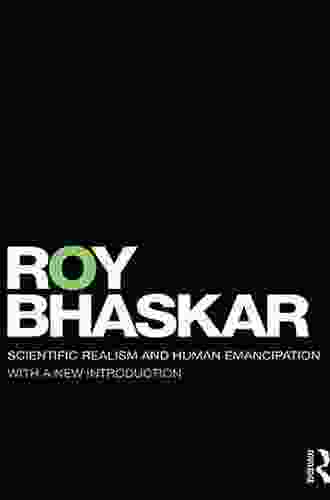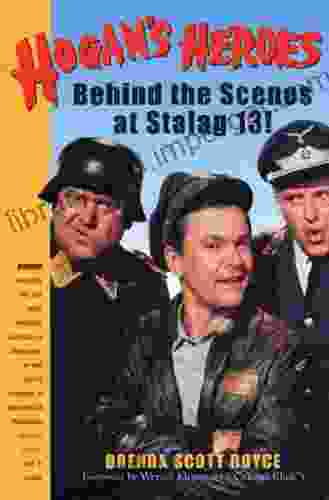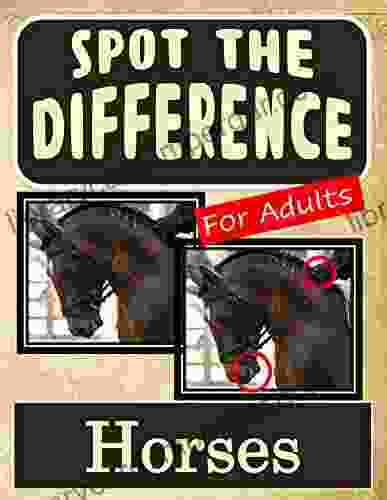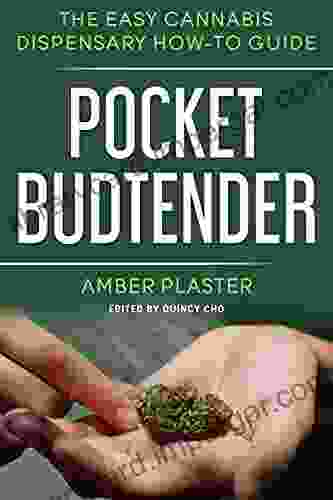Unveiling the Realist Theory of Science: A Journey into Critical Realism

The Realist Theory of Science (RTS) is a philosophical approach that emphasizes the objective reality of the world and the ability of science to provide us with accurate knowledge about that world. RTS stands in contrast to constructivist and idealist theories of science, which argue that scientific knowledge is subjective and dependent on the mind of the observer.
RTS has its roots in the work of philosophers such as Roy Bhaskar, Margaret Archer, and Andrew Collier. These thinkers have argued that science is a process of discovering the real world, and that scientific knowledge is not simply a collection of theories, but rather a body of knowledge that is constantly being revised and refined as we learn more about the world.
In this article, we will explore the foundational texts of RTS and discuss its implications for understanding the nature of scientific knowledge. We will also provide some practical applications of RTS for researchers and scholars.
4.3 out of 5
| Language | : | English |
| File size | : | 668 KB |
| Text-to-Speech | : | Enabled |
| Screen Reader | : | Supported |
| Enhanced typesetting | : | Enabled |
| Word Wise | : | Enabled |
| Print length | : | 304 pages |
The following are some of the most important foundational texts of RTS:
- Roy Bhaskar, A Realist Theory of Science (1975)
- Margaret Archer, Realist Social Theory: The Morphogenetic Approach (1995)
- Andrew Collier, _Critical Realism: An _ (1994)
These texts provide a comprehensive overview of the RTS approach to science. They discuss the ontological and epistemological foundations of RTS, as well as its implications for research methodology.
Bhaskar's book is a seminal work in the field of RTS. In this book, Bhaskar argues that science is a process of discovering the real world. He rejects the idea that scientific knowledge is simply a collection of theories, and instead argues that it is a body of knowledge that is constantly being revised and refined as we learn more about the world.
Bhaskar also discusses the importance of ontology for scientific research. He argues that the ontology of a science is its understanding of the nature of reality. The ontology of a science will determine the kinds of questions that can be asked and the kinds of answers that can be given.
Archer's book is a major contribution to the field of realist social theory. In this book, Archer develops a morphogenetic approach to social theory. The morphogenetic approach is based on the idea that social structures are emergent properties of the interactions between individual agents.
Archer argues that the morphogenetic approach provides a more realistic understanding of social reality than traditional structuralist or functionalist approaches. The morphogenetic approach takes into account the agency of individual agents and the dynamic nature of social structures.
Collier's book is a clear and concise to critical realism. In this book, Collier provides an overview of the ontological, epistemological, and methodological foundations of critical realism. He also discusses the implications of critical realism for research in the social sciences.
Collier argues that critical realism is a powerful approach to understanding the world. Critical realism provides a way of understanding the complex interactions between structure and agency, and between the objective and subjective dimensions of reality.
RTS has a number of implications for understanding the nature of scientific knowledge. These implications include:
- The reality of the world: RTS asserts that the world is real and independent of our minds. This means that scientific knowledge is not simply a collection of theories, but rather a body of knowledge that is constantly being revised and refined as we learn more about the world.
- The objectivity of science: RTS argues that science is an objective process of discovering the world. This means that scientific knowledge is not simply a matter of opinion, but rather a body of knowledge that is based on evidence and reason.
- The importance of ontology: RTS emphasizes the importance of ontology for scientific research. The ontology of a science is its understanding of the nature of reality. The ontology of a science will determine the kinds of questions that can be asked and the kinds of answers that can be given.
- The dynamic nature of reality: RTS recognizes that reality is dynamic and constantly changing. This means that scientific knowledge is not a static body of knowledge, but rather a body of knowledge that is constantly being revised and refined as we learn more about the world.
RTS has a number of practical applications for researchers and scholars. These applications include:
- Providing a framework for research: RTS provides a framework for research that is based on a realist understanding of the world. This framework can help researchers to design studies that are more likely to produce valid and reliable results.
- Helping to understand the complexity of the world: RTS helps researchers to understand the complex interactions between structure and agency, and between the objective and subjective dimensions of reality. This understanding can help researchers to develop more nuanced and sophisticated theories about the world.
- Informing policy decisions: RTS can help researchers to inform policy decisions by providing them with a more realistic understanding of the world. This understanding can help policymakers to develop policies that are more likely to be effective and sustainable.
RTS is a powerful approach to understanding the world. It provides a way of understanding the complex interactions between structure and agency, and between the objective and subjective dimensions of reality. RTS has a number of implications for understanding the nature of scientific knowledge, and it has a number of practical applications for researchers and scholars.
If you are interested in learning more about RTS, I encourage you to read the foundational texts listed in this article. I also encourage you to apply the principles of RTS to your own research and scholarship. I believe that RTS can help you to develop a more realistic and sophisticated understanding of the world.
4.3 out of 5
| Language | : | English |
| File size | : | 668 KB |
| Text-to-Speech | : | Enabled |
| Screen Reader | : | Supported |
| Enhanced typesetting | : | Enabled |
| Word Wise | : | Enabled |
| Print length | : | 304 pages |
Do you want to contribute by writing guest posts on this blog?
Please contact us and send us a resume of previous articles that you have written.
 Book
Book Novel
Novel Page
Page Chapter
Chapter Text
Text Story
Story Genre
Genre Reader
Reader Library
Library Paperback
Paperback E-book
E-book Magazine
Magazine Newspaper
Newspaper Paragraph
Paragraph Sentence
Sentence Bookmark
Bookmark Shelf
Shelf Glossary
Glossary Bibliography
Bibliography Foreword
Foreword Preface
Preface Synopsis
Synopsis Annotation
Annotation Footnote
Footnote Manuscript
Manuscript Scroll
Scroll Codex
Codex Tome
Tome Bestseller
Bestseller Classics
Classics Library card
Library card Narrative
Narrative Biography
Biography Autobiography
Autobiography Memoir
Memoir Reference
Reference Encyclopedia
Encyclopedia Allie Kingsley Baker
Allie Kingsley Baker Stan Holden
Stan Holden Aldo Ricardo Rodriguez Cortes
Aldo Ricardo Rodriguez Cortes Amanda Anderson
Amanda Anderson Alexander Blackley
Alexander Blackley Steven Shaviro
Steven Shaviro Alison Peck
Alison Peck Allison Perlman
Allison Perlman Allison Maslan
Allison Maslan Helen Ellis M A
Helen Ellis M A Allison Fallon
Allison Fallon Federico Battiston
Federico Battiston Albertus D Keet
Albertus D Keet Alessandra Arrigoni
Alessandra Arrigoni Kevin Mcbride
Kevin Mcbride Doug Fine
Doug Fine Ali Rahnema
Ali Rahnema Allan Mallinson
Allan Mallinson Allan W Eckert
Allan W Eckert Matthew Gumke
Matthew Gumke
Light bulbAdvertise smarter! Our strategic ad space ensures maximum exposure. Reserve your spot today!
 Hunter MitchellFollow ·12.7k
Hunter MitchellFollow ·12.7k Henry GreenFollow ·8.6k
Henry GreenFollow ·8.6k Derek BellFollow ·6.2k
Derek BellFollow ·6.2k Oscar BellFollow ·18.6k
Oscar BellFollow ·18.6k Osamu DazaiFollow ·16.6k
Osamu DazaiFollow ·16.6k Isaac BellFollow ·10.3k
Isaac BellFollow ·10.3k Branson CarterFollow ·9.4k
Branson CarterFollow ·9.4k Corbin PowellFollow ·5k
Corbin PowellFollow ·5k
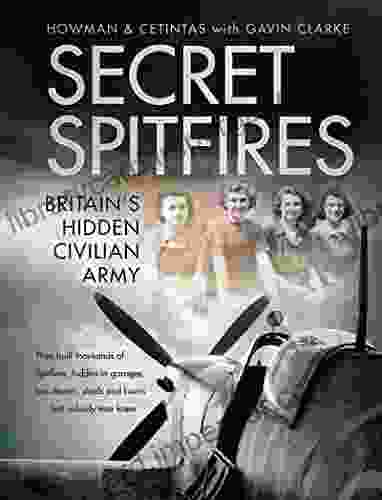
 Ignacio Hayes
Ignacio HayesUnveiling the Secret Spitfires: Britain's Hidden Civilian...
: The Untold Story of Britain's...
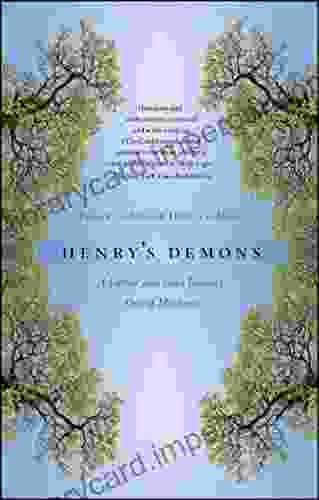
 Scott Parker
Scott ParkerLiving With Schizophrenia: A Father and Son's Journey
Schizophrenia is a serious...

 Ted Simmons
Ted Simmons"From Sign Up to Pass Out": The Shocking and Immersive...
Step into the...

 John Keats
John KeatsThe Development of Biographies and Philosophical...
The Alluring...
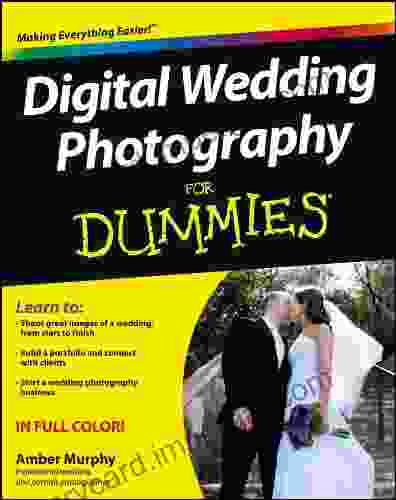
 Dan Brown
Dan BrownCapture Your Dream Wedding with Digital Wedding...
Your wedding day is...
4.3 out of 5
| Language | : | English |
| File size | : | 668 KB |
| Text-to-Speech | : | Enabled |
| Screen Reader | : | Supported |
| Enhanced typesetting | : | Enabled |
| Word Wise | : | Enabled |
| Print length | : | 304 pages |


